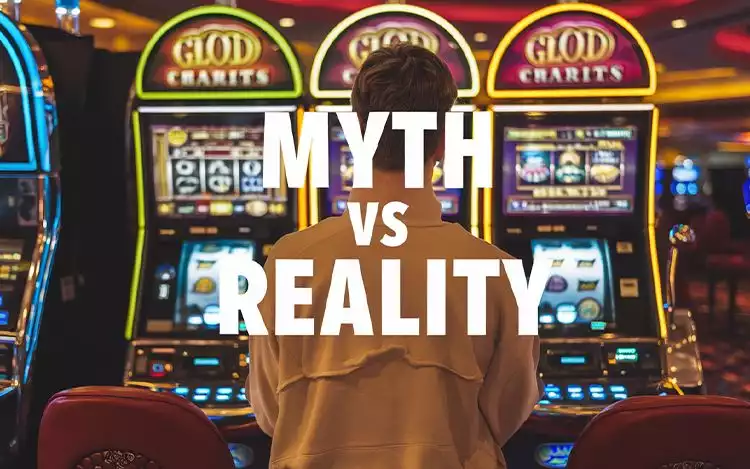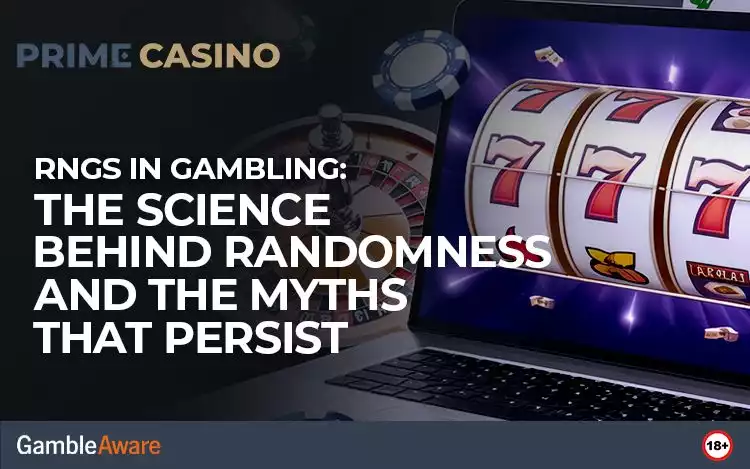What keeps online gambling fair and transparent? Random Number Generators (RNGs) power everything from digital slots to virtual blackjack, delivering unbiased results every time. are the unseen force behind every digital casino game, creating a level playing field through pure, certified randomness. Despite strict regulations and independent testing, myths about rigged outcomes and manipulation persist. Many players find it difficult to trust a system they cannot see, leading to widespread misconceptions.
This guide explores:
- The science behind RNGs and why our brains struggle to accept true randomness.
- The widespread use of RNGs beyond online casinos, from lotteries to virtual sports.
- Common myths about rigged games and the truth behind "controlled outcomes."
- The psychology of near misses and how they encourage continued play.
- Popular betting myths and why strategies like lucky numbers don’t work.
- Industry safeguards and regulation ensuring RNG integrity in UK gambling sites.
By understanding these key aspects, players can make informed decisions and enjoy online gaming with confidence.
The Science of Randomness: Why Our Brains Struggle to Accept It
Humans are wired to detect patterns, even when none exist. This cognitive bias, known as pattern recognition bias, leads many gamblers to believe that past outcomes influence future results—one of the most common gambling fallacies.
The illusion of control also plays a role. Many players assume they can predict or manipulate outcomes in RNG-based games. However, a 1988 study by Wagenaar demonstrated that gamblers consistently misinterpret randomness, mistakenly believing that a slot machine is "due" for a win after a losing streak.
Another misconception is that RNGs create "fake" randomness, as opposed to the "natural" randomness of rolling dice. In reality, modern RNG systems leverage complex algorithms and seed values to produce outcomes with unpredictability that matches or exceeds natural randomness.
RNGs Beyond Online Casinos: How They’re Used in Other Industries
RNG technology extends far beyond online slot machines. It plays a vital role in various gambling formats, including:
- Electronic roulette – Digital RNGs determine outcomes in certain land-based and online versions of roulette.
- Poker and card games – RNGs shuffle digital decks, ensuring fair play.
- Lotteries and scratch cards – Randomized number selection guarantees fairness.
- Virtual sports betting – RNGs simulate match outcomes for betting purposes.
- Esports betting – RNG-based mechanics influence loot box rewards and in-game random events.
These applications highlight the reliability and necessity of RNGs across different industries. Ensuring truly random results is essential to maintaining fairness and trust in gambling and other sectors that rely on unbiased outcomes.
The "Controlled Outcome" Fallacy: Why Players Believe Casinos Rig RNGs
One of the most persistent myths is that online casinos control when and how wins occur. Some players believe that slot games are programmed to "force" losses before eventually allowing a big win. In reality, RNGs operate independently and do not have memory.
Each spin in an RNG-driven game is separate from the last. A 2020 study by Delfabbro & King found that belief in "winning streaks" often leads to gambling losses, as players mistakenly assume they can predict future results.
Moreover, the pseudo-random number generators (PRNGs) used in online gambling generate millions of number sequences per second, making real-time manipulation virtually impossible. Licensed UK casino sites cannot alter these results, as all RNG software is subject to regulatory scrutiny and independent testing.

The "Near Miss" Effect: How It Triggers False Expectations
Near misses are one of the biggest psychological traps in gambling. Imagine playing an online slot game where two jackpot symbols land on the reels, but the third just misses. It feels like a "close call," even though each spin is completely independent.
This phenomenon, known as the near-miss effect, was explored in a study by Reid (1986), which found that near misses activate the same brain regions as actual wins, encouraging continued play. However, it’s important to remember that near misses do not indicate that a slot is "warming up" for a payout. Every spin is determined by the RNG at the moment you press the spin button, ensuring randomness.
Betting Myths: The Truth About "Lucky Numbers" and "Winning Strategies"
Superstitions and so-called "winning strategies" are common in gambling, but most have no basis in reality. Some of the most widespread myths about RNGs include:
- "Lucky numbers increase your chances of winning." RNGs do not recognize player preferences, so choosing the same roulette number every round offers no statistical advantage.
- "Slot themes affect payout rates." A game’s visuals are purely aesthetic. Payout percentages (RTP) are pre-programmed and independently audited.
- "Progressive betting systems guarantee profits." Strategies like the Martingale and Fibonacci do not change randomness; they only adjust bet sizing, often leading to higher losses.
Industry Safeguards: How Online Casinos Ensure RNG Integrity
For players seeking fair games, the best safeguard is choosing licensed and regulated online casinos. Independent auditing agencies such as eCOGRA, iTech Labs, and GLI rigorously test and certify RNG software to ensure true randomness.
Key regulatory measures include:
- RNG audits – Regular testing verifies fair outcomes.
- Transparent RTP rates – Casinos must disclose the return-to-player percentages of their games.
- Security protocols – Anti-tampering measures prevent interference with RNG functionality.
Players can confirm a casino's legitimacy by checking for certification logos and licensing details from reputable authorities like the UK Gambling Commission and the Malta Gaming Authority.

Final Thoughts: Why Understanding RNGs Helps Players Make Smarter Choices
Misconceptions about RNGs fuel distrust and lead players to fall for ineffective betting strategies. By understanding the science behind randomness, players can approach online casino games with confidence, avoiding common gambling myths.
Key takeaways:
- RNGs ensure true randomness in online gambling, making every spin or outcome independent.
- Common myths, such as "hot" or "cold" streaks, are based on psychological biases rather than reality.
- Near misses can create false expectations, but they have no impact on future results.
- Betting strategies like Martingale and lucky numbers do not influence RNG outcomes.
- Licensed online casinos undergo rigorous testing to ensure fair play and transparency.
As Albert Einstein once said, "God does not play dice with the universe." While he was skeptical about randomness in physics, in gambling, we can be certain. RNGs do play dice, and they do so fairly.
Whether you're playing for fun or aiming for the next big win, choosing a trusted platform makes all the difference. At Prime Casino, you can enjoy an unparalleled online gaming experience backed by fairness, transparency, and industry-leading security measures. Come visit and join us today!








